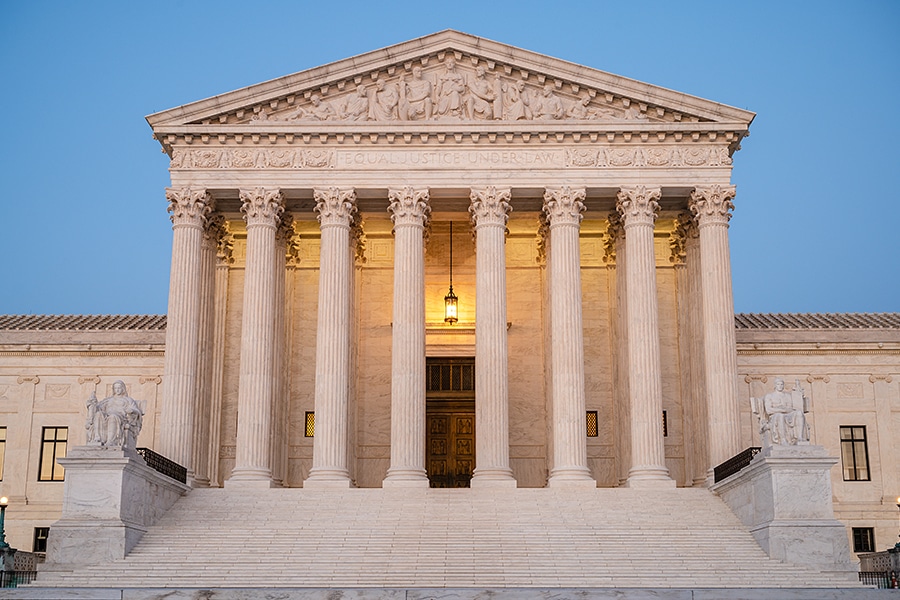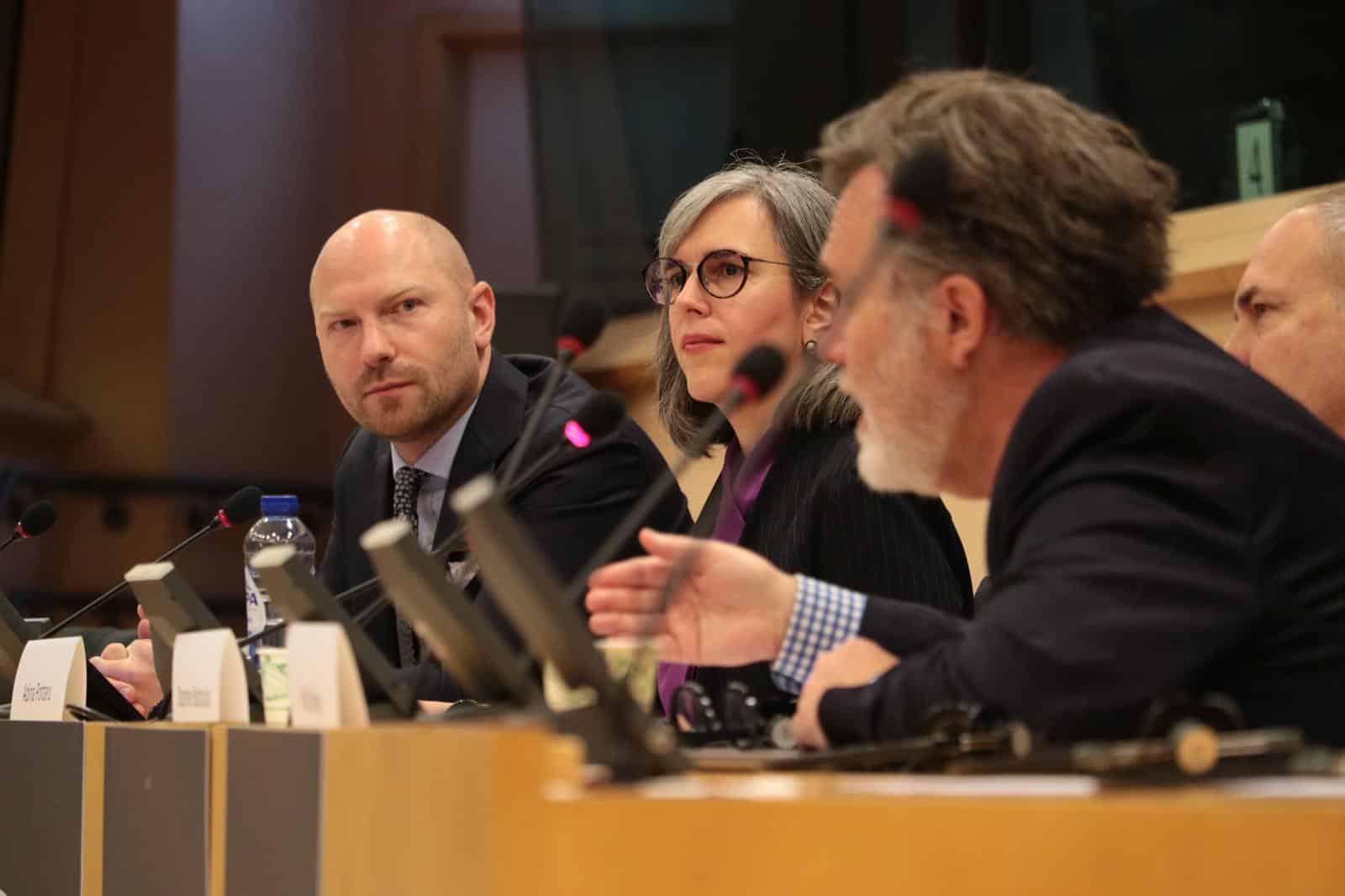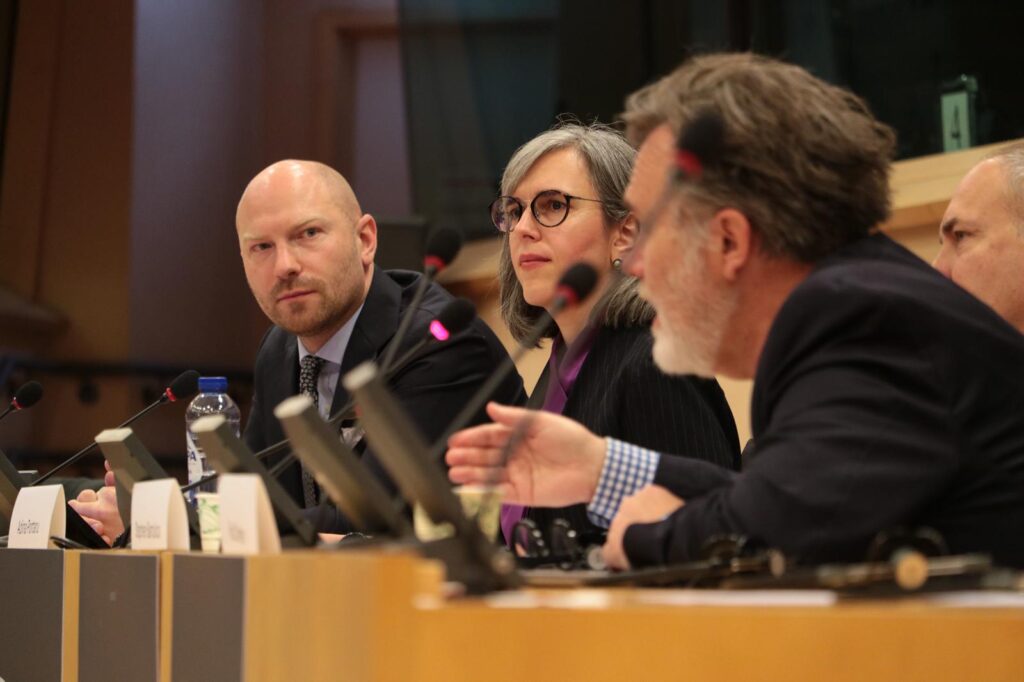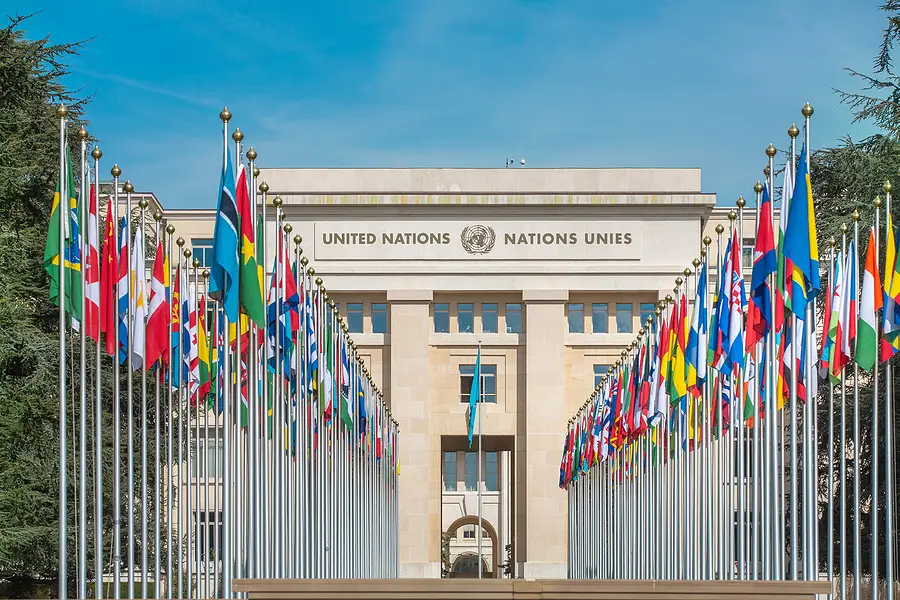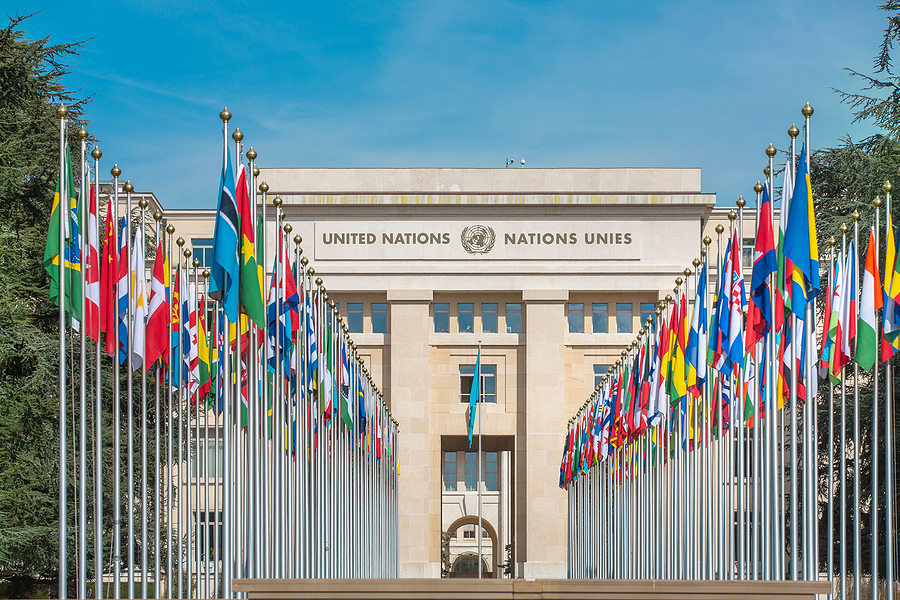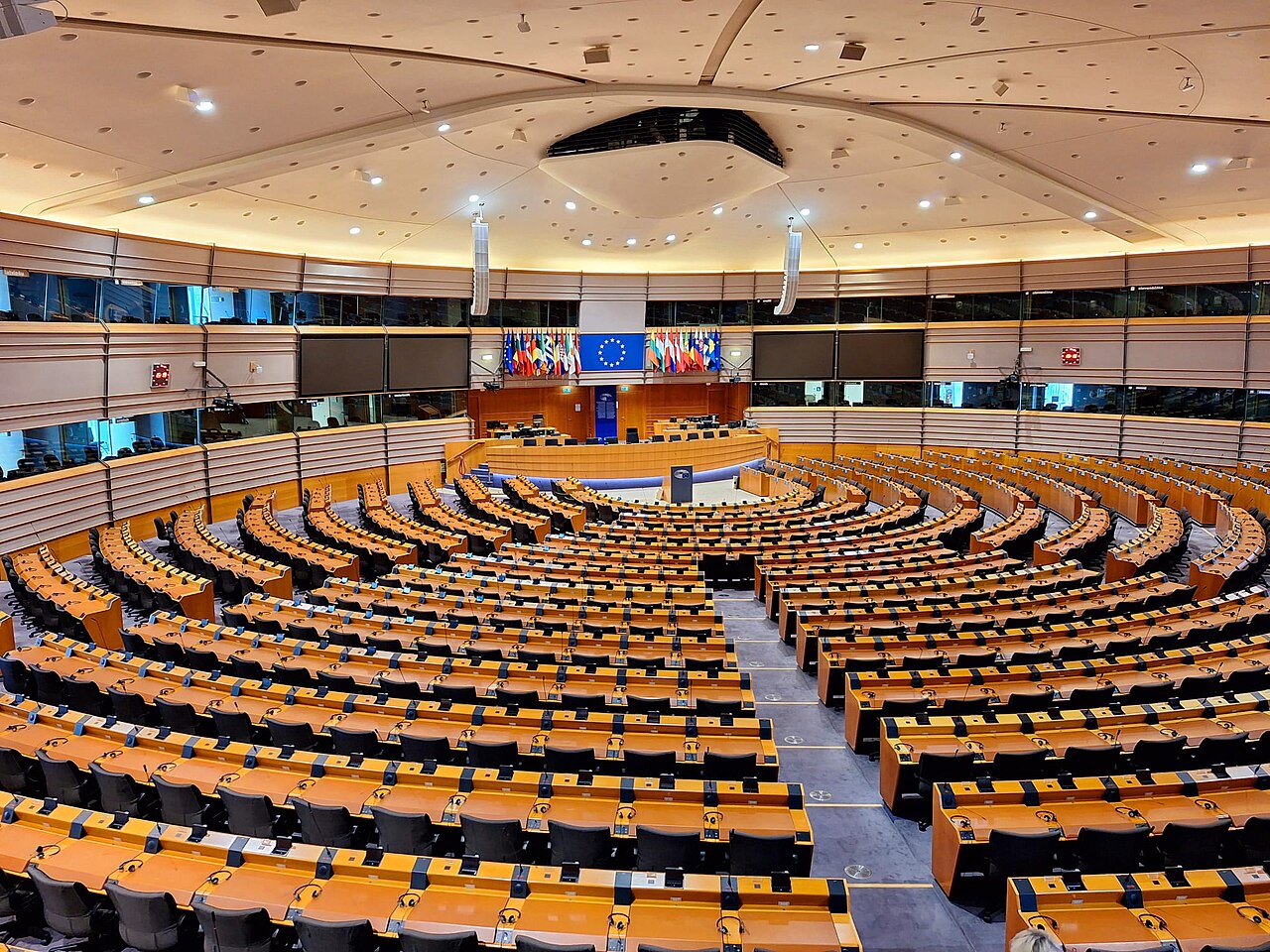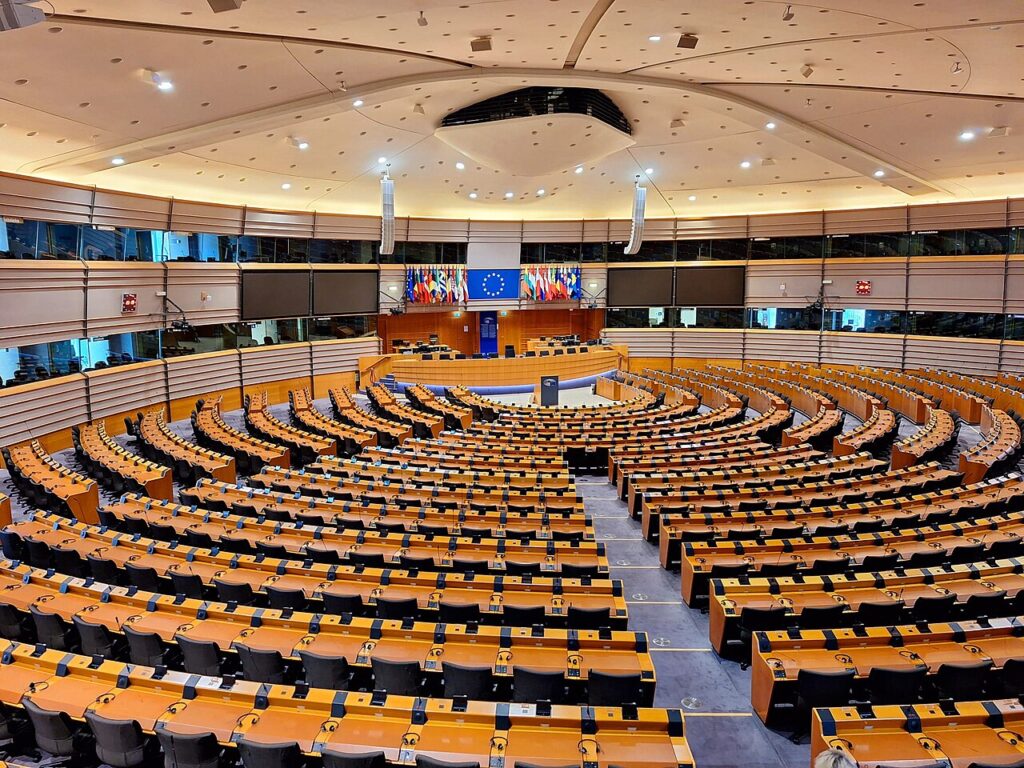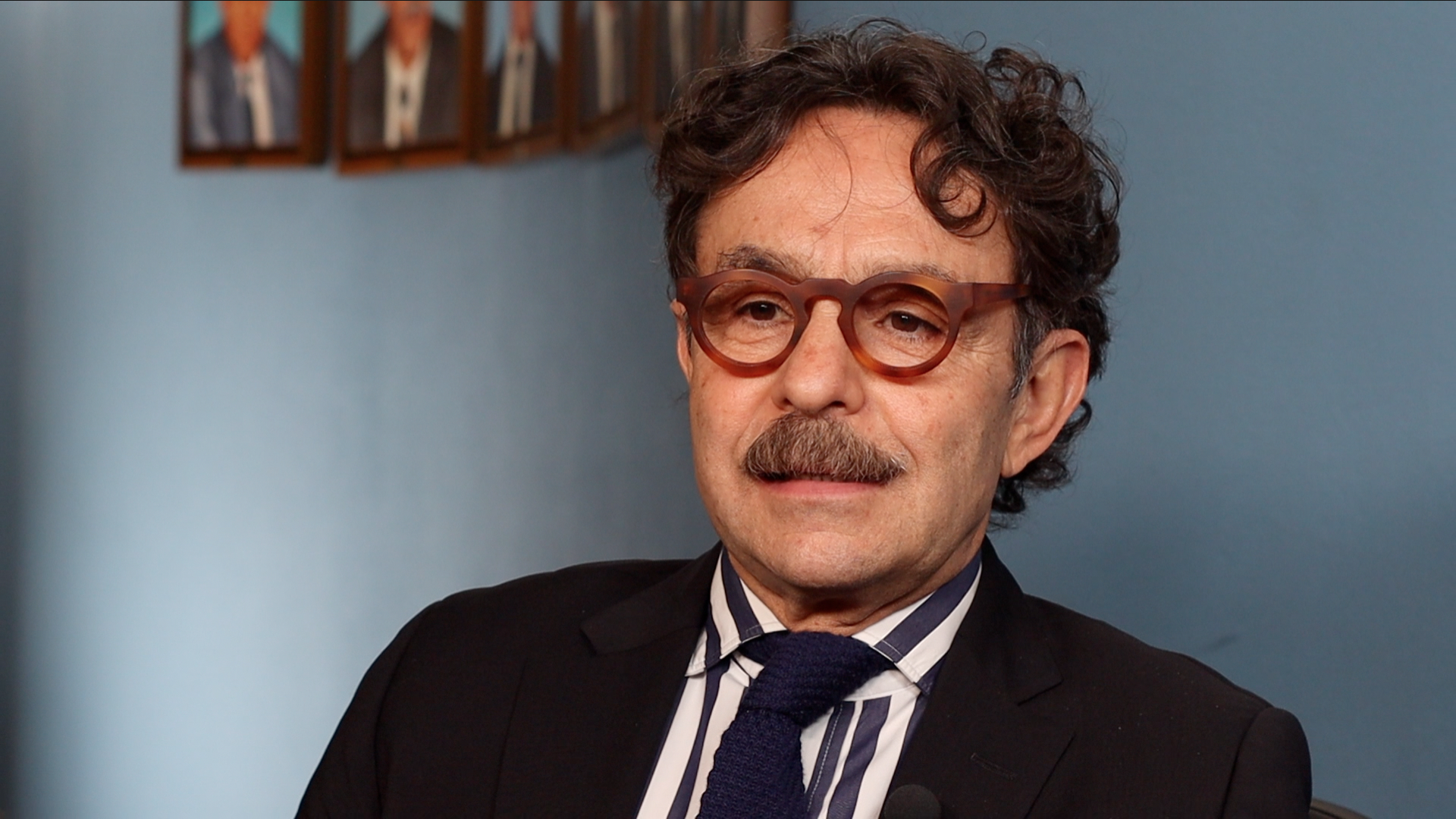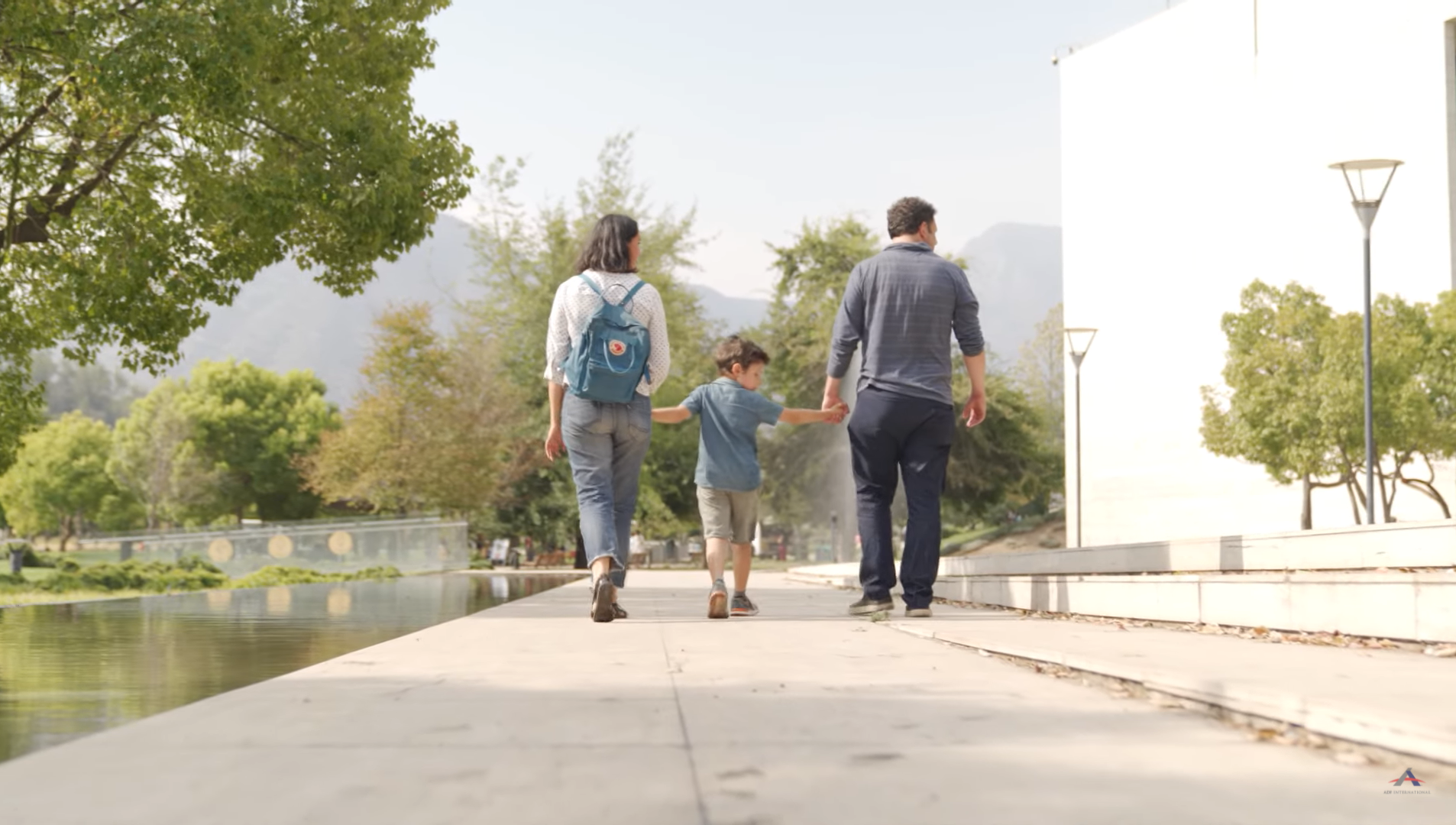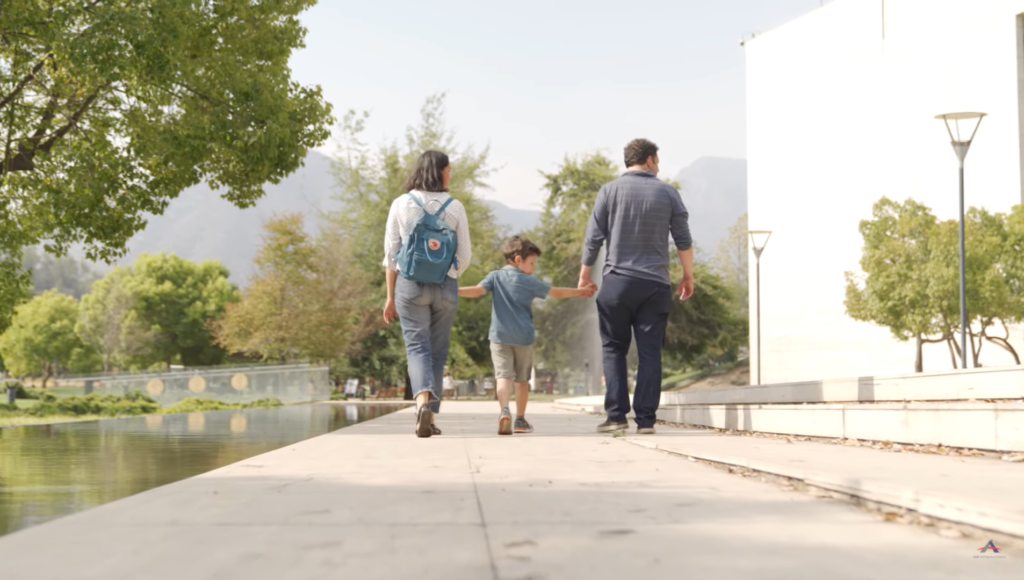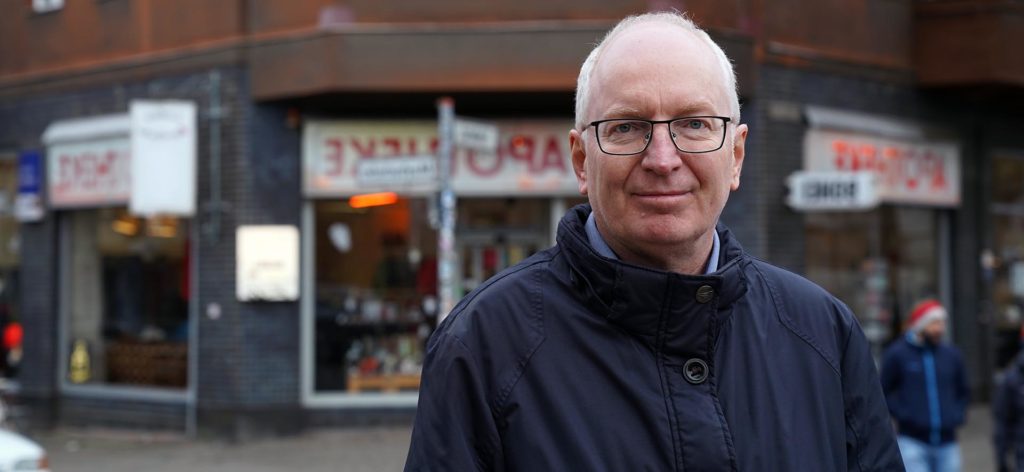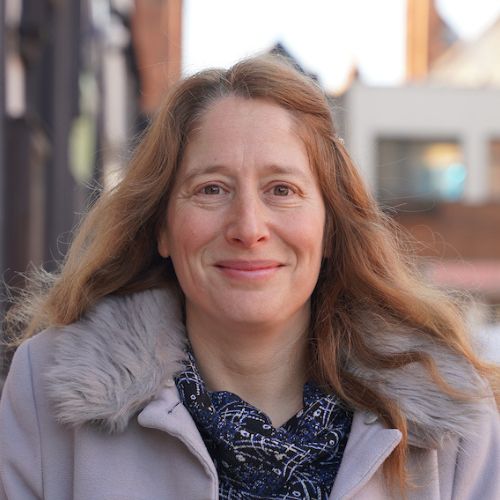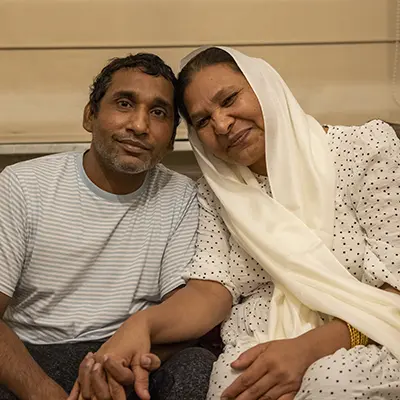Brussels (21 May 2025) – Experts this morning warned about the threats of an EU online censorship law, in a first-of-its-kind, cross-party convening at the European Parliament.
The well-attended conference, which was co-hosted by ADF International, and Members of the European Parliament (MEPs) Stephen Bartulica and Virginie Joron, was entitled “The Digital Services Act and Threats to Freedom of Expression”.
The event followed the Bureau of Democracy, Human Rights, & Labour, a bureau within the US State Department, expressing concern about the censorial impact of the Digital Services Act (DSA).
At the event, which was attended by MEPs and staffers from across the political spectrum, think-tankers, journalists and others, Ms Joron warned that although the DSA was meant to create a “safe online environment”, it has “morphed into a tool that risks undermining our fundamental freedoms”.
She added: “What was sold as the Digital Services Act is increasingly functioning as a Digital Surveillance Act. The European Commission, alongside some parliamentarians, has seized upon the DSA as a political tool to control speech, particularly targeting platforms like X, Facebook, and Telegram.
“The DSA was meant to protect our digital space, not to control it… The DSA, once a shield for our rights, risks becoming a Trojan horse for surveillance and control.”
Mr Coleman, an international human rights lawyer specialising in free speech and Executive Director of ADF International, a Christian legal organisation that defends freedom of expression, told the conference: “Free speech is again under threat on this continent in a way it hasn’t been since the nightmare of Europe’s authoritarian regimes just a few decades ago.
“The internet is the frontline of this assault on free speech in Europe—particularly through the Digital Services Act.”
He added that “serious questions can and should be raised” about whether the DSA is compatible with “binding obligations to protect freedom of expression”.
He commented from his position of legal expertise that it was his “strong view” that “it is not”.
In his speech, Mr Bartulica warned that “hate speech”, which politicians want to use the DSA to “address”, is “impossible to define” as a legal concept.
He said quoting Christian Scripture could even be considered “hate speech” by those in power.
Mr Coleman mentioned the case of Finnish parliamentarian Päivi Räsänen, which is supported by ADF International, in his speech, as a “harrowing example of what censorship under the DSA could look like in practice”.
He said: “Six years ago, Päivi posted a picture of a Bible verse and expressed her Christian views on sexuality on X. She was criminally prosecuted for alleged ‘hate speech’ and has been unanimously acquitted in two trials.
“But the state prosecutor has appealed the case again. And shockingly, her case—in which she faces trial for posting online—is now pending before Finland’s Supreme Court.
“Now, under the DSA, deeply problematic national laws restricting speech—like the “hate speech” legislation used to prosecute Päivi —could be broadly applied across the EU by this simple principle: If it’s considered illegal in one place, it could be in every place.”
Mr Bartulica also said that in the EU “we have regulated or controlled speech and not free speech”.
He added: “We don’t have to reinvent the wheel—we’ve seen where mass censorship leads. Under communism and other totalitarian regimes, it’s not a pretty picture.
“There’s a totalitarian impulse in many of these people in Brussels, who are just waiting to censor speech they don’t like.”
JD Vance opposes Europe’s censorial ruling class
Also speaking at the event was American journalist and bestselling author Rod Dreher.
Mr Dreher, who is a friend of US Vice President JD Vance, said that following the Vice President’s speech in Munich, that people had asked him if VP Vance hates Europe.
He said: “Of course” the VP does not hate Europe—he loves it enough to speak the truth about its censorship crisis.
But Mr Dreher did say the VP opposes Europe’s censorial ruling class.
Mr Dreher observed that “elites would prefer to suppress discussion of discontent and its sources”—smearing such discussion as „hate speech“—rather than acknowledge the serious problems plaguing their societies.
Drawing on the wisdom of Soviet dissidents, he recommended that in the face of “soft totalitarianism” in the West today that people „refuse to participate in any event where one cannot speak the truth… Prepare to suffer for the truth”.
How to oppose the DSA
In his speech, Mr Coleman also gave concrete ways in which the DSA can be opposed.
He said: “It is thankfully the case that freedom of expression is guaranteed in Article 11 of the EU Charter, Article 10 of the European Convention on Human Rights and Article 19 of the International Covenant on Civil and Political Rights.
“According to these and the jurisprudence of the ECHR, any limitations to free speech must be proportionate and necessary in a democratic society.
“And so, serious questions can and should be raised about whether the DSA is compatible with these binding obligations to protect freedom of expression.
“It is my strong view, as you may have guessed from this speech, that it is not. So, what can be done about this?
“Member states could initiate an action for annulment before the Court of Justice of the European Union. Through this, the whole or parts of the DSA could be declared inapplicable, if they are deemed to infringe on the EU Charter or Treaties.
“The same question, of considering whether the DSA is compatible with binding obligations to protect free speech, is key for the upcoming DSA review, in which the Commission must evaluate the act in view of other legal commitments.
“It is imperative that every opportunity is taken in the review, which must occur by mid-November this year, to raise concerns about the censorial impact of the DSA.
“This could be accomplished through written or oral questions to the European Commission and even by inviting Commissioner Henna Virkkunen to discuss the legislation in the European Parliament. After all, if the Commissioner is as in favour of freedom of expression as she claims to be, why would she refuse?
“It is vital to include representatives of civil society, tech companies and digital rights groups in such conversations, as they can share their invaluable expertise on this important issue.
“As elected representatives of your people, you are also in an excellent position to bring the public’s attention to the grave risks to free speech posed by the DSA.
“The truth is that every single European’s rights are jeopardised by this legislation. The more the public is aware of and speaks out about this, the more pressure the Commission will feel. And the more likely we are to defeat this law.”
Background
Today’s conference was the first of its kind in the European Parliament to focus on the threats to free speech posed by the DSA, to offer concrete answers on how to oppose them, and to discuss the fundamental importance of freedom of expression for societal flourishing, in that context.
The gathering of free speech experts adds to steadily building pressure on the DSA, following a letter reportedly sent to the European Commission last week by the US House Judiciary Committee, expressing concern over the legislation.
Henna Virkkunen, the Commission’s Executive Vice-President for Tech Sovereignty, Security and Democracy, also met with Congressman Jim Jordan, Chair of the House Judiciary Committee, in Washington DC last week.
In a post on X, she said: “Candid exchange with @Jim_Jordan [Chairman Jordan].”
She went on to claim in the post: “Freedom of speech is a fundamental right in the EU and is strongly protected by our digital rules. Happy to continue our good discussion.”
Earlier this month, the US Department of State Bureau of Democracy, Human Rights, and Labor expressed concern over the censorial impact of the DSA.
The State Department bureau posted on X: “The Department of State is deeply concerned about efforts by governments to coerce American tech companies into targeting individuals for censorship. Freedom of expression must be protected – online and offline.
“Examples of this conduct are troublingly numerous. EU Commissioner Thierry Breton threatened X for hosting political speech.”
The post continued: “Türkiye fined Meta for refusing to restrict content about protests; and Australia required X to remove a post criticizing an individual for promoting gender ideology.
“Even when content may be objectionable, censorship undermines democracy, suppresses political opponents, and degrades public safety. The United States opposes efforts to undermine freedom of expression. As @SecRubio [Marco Rubio] said, our diplomacy will continue to place an emphasis on promoting fundamental freedoms.”
The Digital Services Act
EU politicians have stated their desire for the DSA to “address’ so-called “mis” and “disinformation” online—vague and subjective terms, which experts have warned can be used to justify censorship.
The regulation would provide an incentive to put pressure on tech companies, including American ones, to censor speech, rather than risk massive financial penalties for non-compliance.
There are additional concerns in the US about the DSA potentially having an extraterritorial impact and being used to censor speech inside America.
An attempt at using the regulation to censor speech in the US was seen last summer, when former Commissioner Thierry Breton warned Elon Musk to not breach the DSA ahead of his X interview with then-Presidential candidate Donald Trump.
Find more information on the DSA here.





